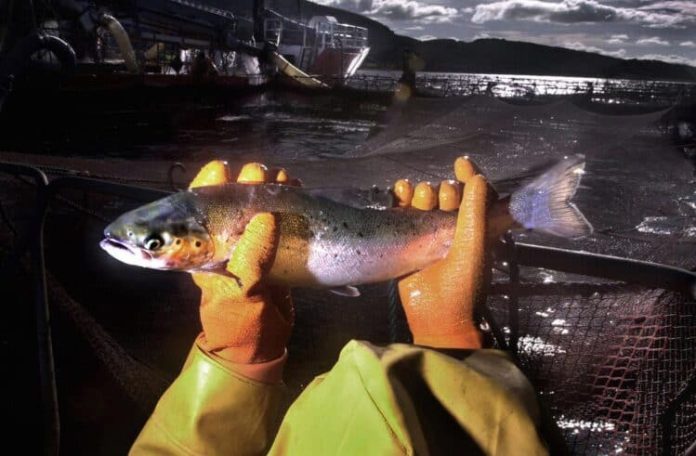The trade body reported to Members of the Scottish Parliament (MSPs) on Thursday on how more than 53,000 tonnes of Scottish salmon were exported to the EU in 2019, but by 2023 the figure had fallen to 44,000 tonnes.
The value of exports to the EU fell by just three per cent to £356 million as strong global demand drove up prices, but if the sector had maintained volumes at 2019 levels, sales would have been more than £430 million, according to the trade body. It argued:
“That means there has been a net “loss” of around £75 million, or up to £100 million had the sector grown at the rate previously expected.”
The impact of Brexit was mitigated by tremendous growth in other markets, particularly Asia and the US. Total international sales in 2023 increased from £578m to £581m (+0.5%), including an increase of 7% in the US and 22% in Asia.
However, as salmon becomes increasingly popular in traditionally smaller European markets such as the Netherlands and Spain, smoother trade flows and new markets will provide an opportunity for further economic growth, leading to increased investment in the Scottish economy and the creation of more highly skilled Scottish jobs.
The Brexit implications of lost sales do not include direct costs to farming companies of £3 million per annum due to the lack of an e-certification scheme.
Salmon Scotland chief executive Tavish Scott spoke to MPs on the Constitution, Europe, External Affairs and Culture Committee as part of an enquiry into the EU-UK Trade and Co-operation Agreement (TCA), which is due to be renegotiated after the UK general election.
Calling on the next UK government to take urgent action, he outlined the challenges salmon farmers will face after Brexit, including: competitiveness, the lack of new electronic certification for Export Health Certificates (EHCs) and problems with the current outdated system, which is costing salmon farming companies £3 million a year, border control posts (BCPs), which come into force in April this year, bringing a raft of new import requirements for the feed sector.
Speaking ahead of his committee appearance, Scott said:
“Despite soaring sales to Asia and the US, the EU is still the most significant region for our exports, accounting for more than 60 per cent of international sales. But Brexit red tape continues to hold back the potential of Scottish exports, despite the hard work and investment put in by farmers to address the issues. We need the next UK government – whatever formation it is – to ease the burden on exporters so that sectors like ours can sell more Scottish produce, delivering economic growth and creating jobs here at home.”
